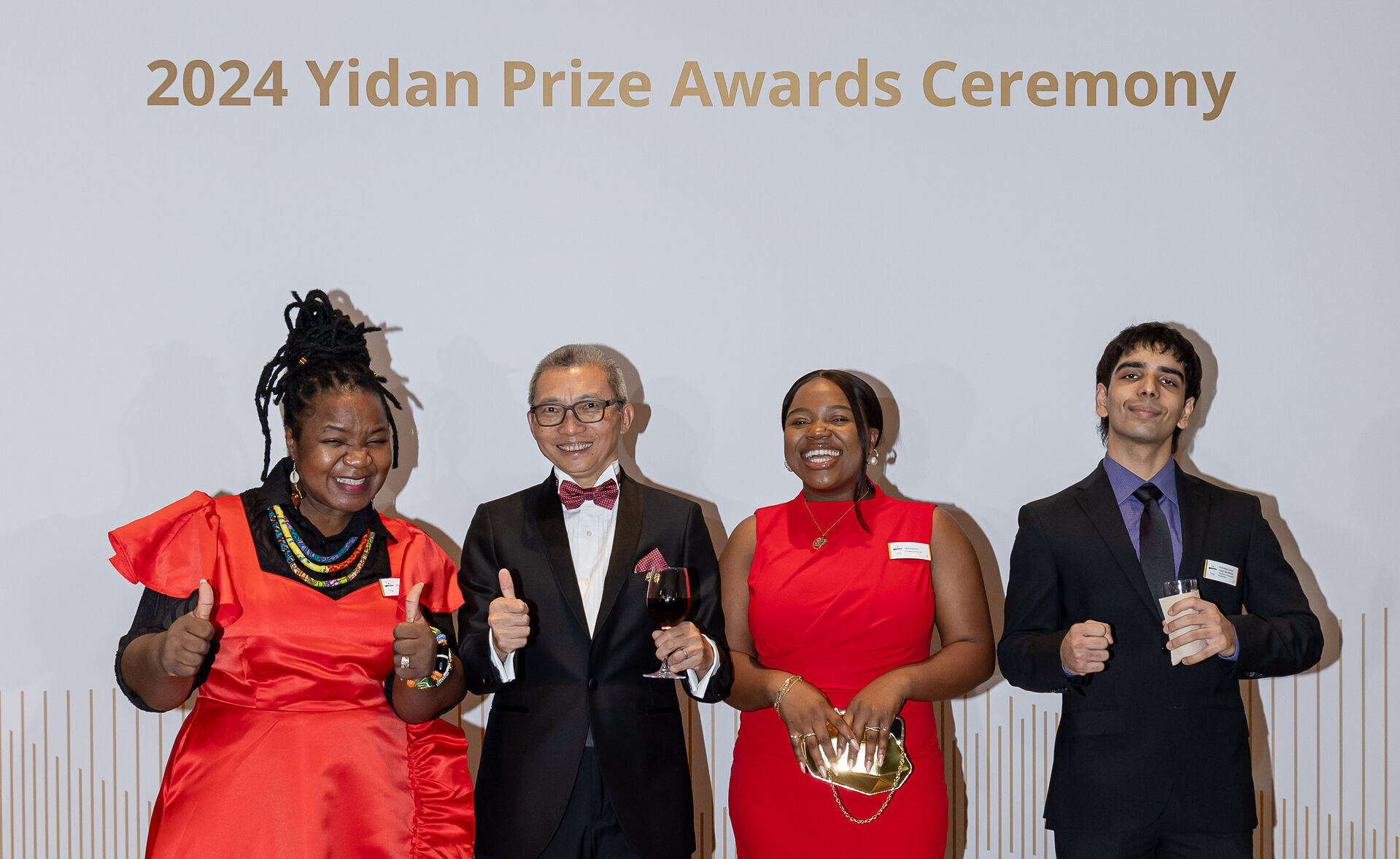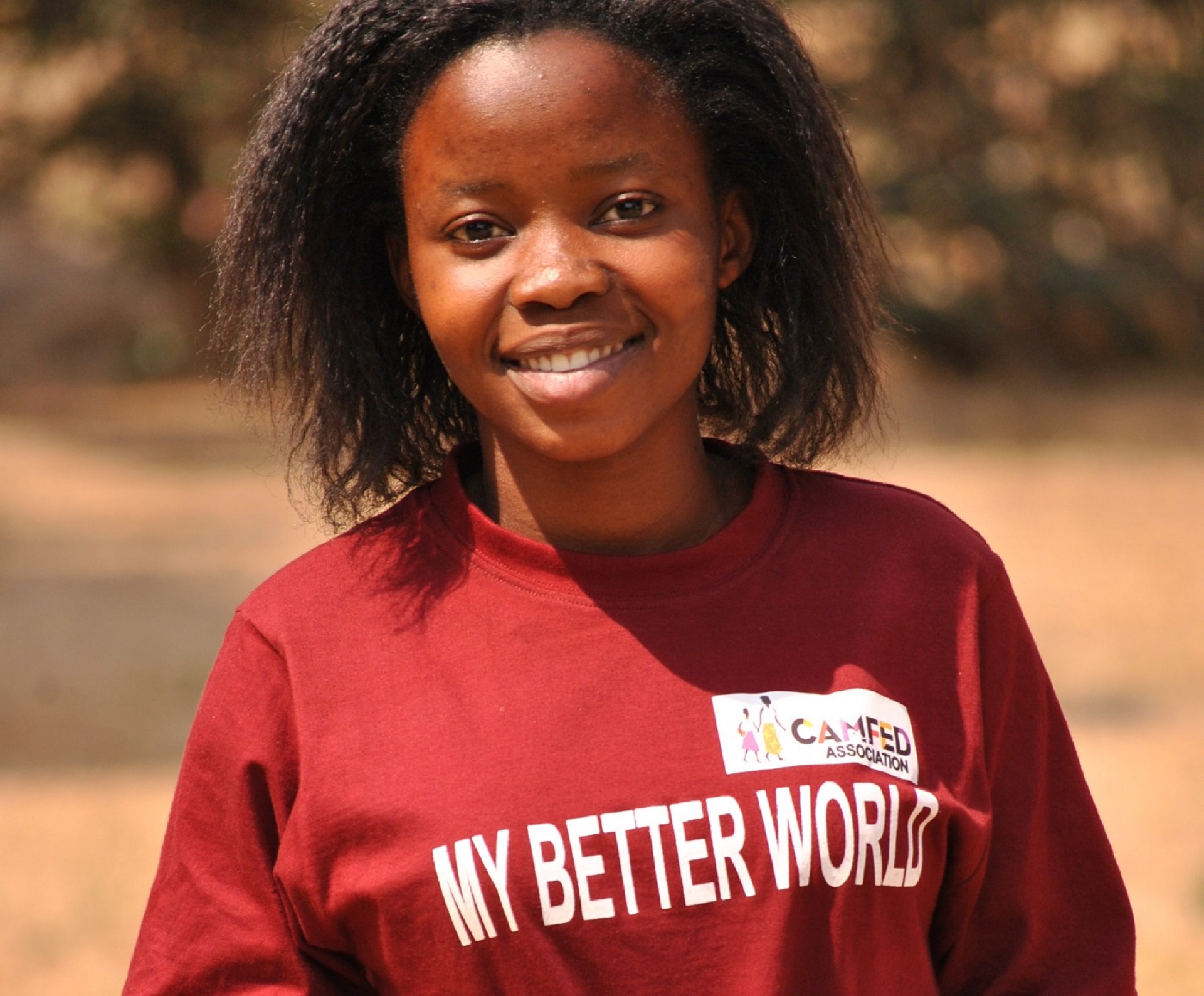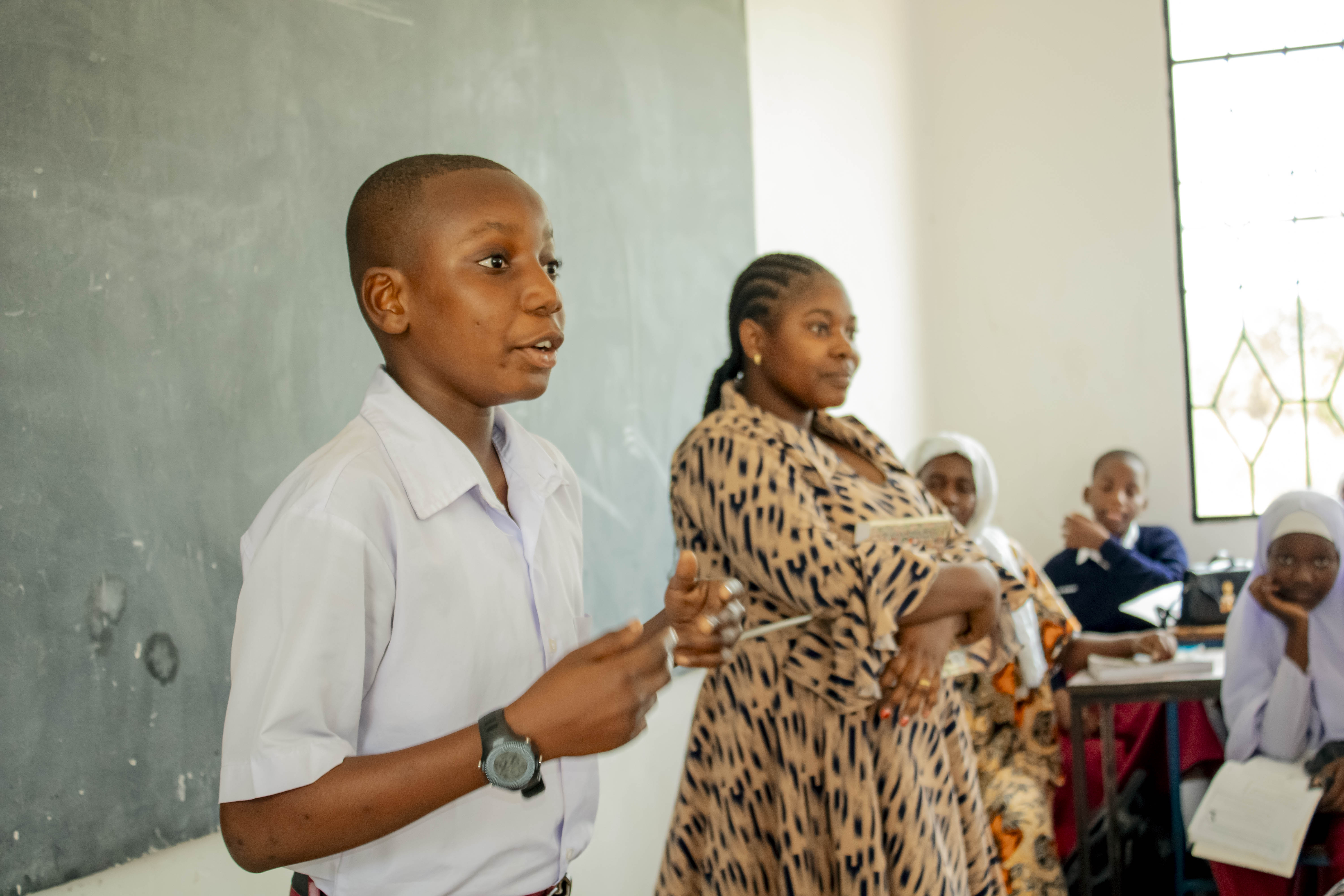My mum always told me how important education is.
She told me when you educate a girl child, you educate a nation. She knows what it means not to have the chance to finish your education, and to struggle to support your children with their basic needs. Mum lost her husband and I lost my dad when I was three years old. I have two brothers and one sister; I am the youngest.
As a widow, it was difficult for my mum to provide our school needs; things like sanitary pads, books and school fees.
If I had not been selected as a CAMFED scholar by my community, I might have been married at a young age.
Instead, I completed my secondary education and became a Learner Guide (a peer educator and life skills mentor) at the same school I attended. I am known as a role model and a “focuser” — someone who helps children focus on their futures, set goals, and learn how to achieve them. I am determined to help as many girls and women as possible to unlock their futures, and one day, as a journalist, I will bring our stories of survival and leadership to the world.
CAMFED (the Campaign for Female Education) started supporting me in 2014, when I was in Grade eight of secondary school. I was 13 years old. My mum was so happy when I was selected as a CAMFED scholar that she met with CAMFED staff to thank them personally.
Adolescence is a time when so many girls are pushed out of school, because costs rise and so do the dangers to girls, who may get involved in relationships on the promise of the items they need to support their families and pay their school fees. This often leads to exploitation, abuse, early pregnancy and early marriage — and a brighter future lost.
Here’s me as a student in 2017. I was already dreaming big. I chose the pseudonym Melody at the time, as I was underage.
School opened up the door to so many opportunities for me
School opened up the door to so many opportunities for me. I especially loved English and the social sciences. While I was still a student, I got the opportunity to be trained as a Sexual and Reproductive Health (SRH) Services volunteer. As a peer educator, I provided SRH information in schools in my district, making sure young people gained the knowledge about their bodies and their rights, and could make safe, healthy choices. This led to me joining Samfya’s Youth Friendly Spaces after school — a platform for young people to educate one another on issues to do with SRH, and also take the same information to young people in schools and communities.
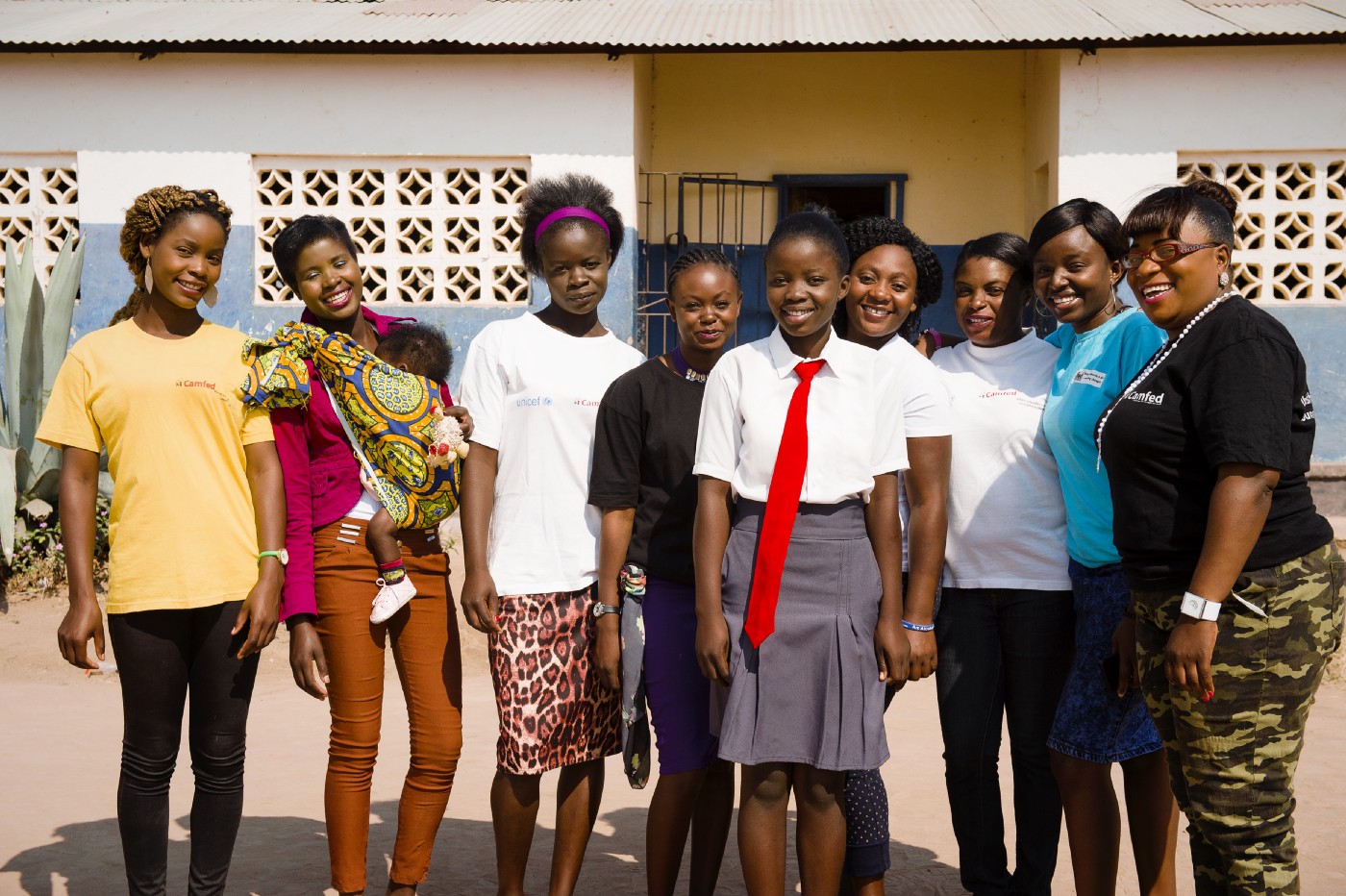
Me as a student with some of the CAMFED Association members who supported me. Now I’m part of this powerful network. Photo: CAMFED/Eliza Powell.
It is the best feeling to be part of the CAMFED Association (CAMA)
As soon as I graduated in 2018, I also joined the CAMFED Association. It’s a movement of young women who were supported by CAMFED in school; we work together to make sure more girls get the chance we got. It is the best feeling ever to be a part of this sisterhood. Our network spans five countries (Zambia, Tanzania, Malawi, Ghana and Zimbabwe), and we have our own Constitution and elected officials. In addition to mentoring girls in our communities, we look after other vulnerable people — we clean hospitals, visit patients, and also help elderly people by cleaning their surroundings. And we lift each other to new heights. Through the CAMFED Association, I underwent a transition training where I was equipped with entrepreneurial and leadership skills, and deepened my knowledge about sexual and reproductive health rights.
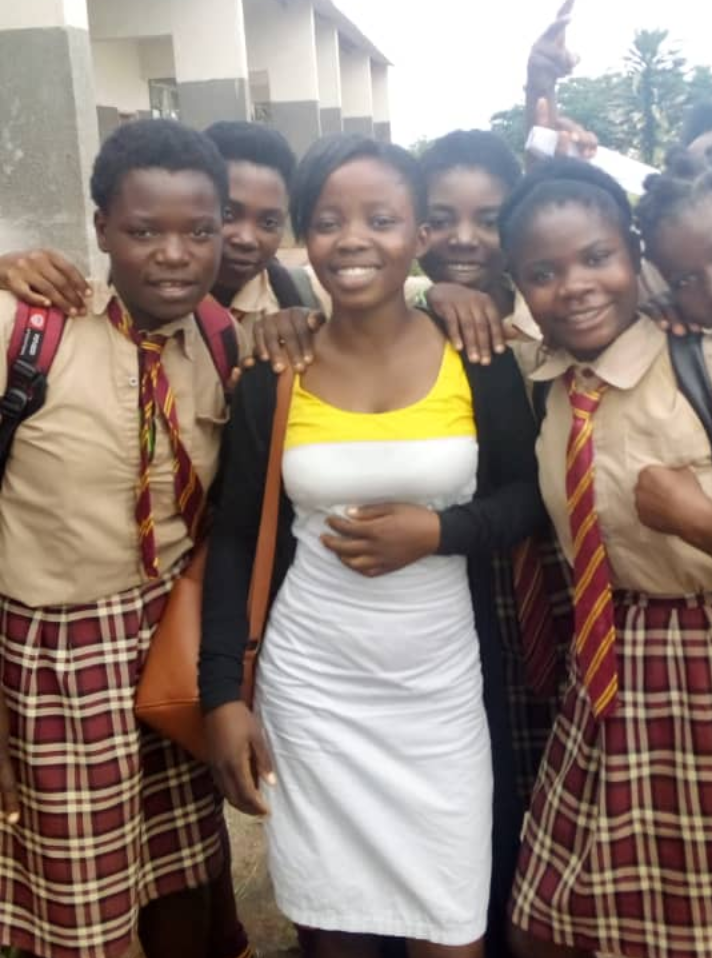
Me as a proud Learner Guide with some of the students I support (before COVID-19 school closures). Photo: Everlyn Mwila
In February 2019, I seized the opportunity to be trained as a CAMFED Learner Guide, a volunteer delivering our My Better World life skills and wellbeing sessions to children in my local school — the same school I went to! I am very excited to be giving back to my community in this manner. As Learner Guides, we help children to overcome their challenges, connect them to support, and involve communities to make sure everyone comes behind girls’ education. We follow up if children drop out of school, and work to keep girls learning and out of child marriage. As a Learner Guide I am a motivator, a role model to pupils in schools, and also in my wider community.
I have developed new skills, including facilitation and public speaking skills. These are very important skills, which will help me in my future career. I am respected in my community by pupils, their parents, as well as the teachers, because of the knowledge I am imparting to the learners.
What is so sad is losing future leaders when young women become mums at a tender age.
When I was 16 and still in school, I dreamed of becoming a journalist. Whenever I saw someone reading the news on TV it really touched my heart. I was determined to be like those people, and to help vulnerable people in my community at the same time. I just wanted to do something good for people in need, and to provide for my mother and my siblings, because I know what they went through.
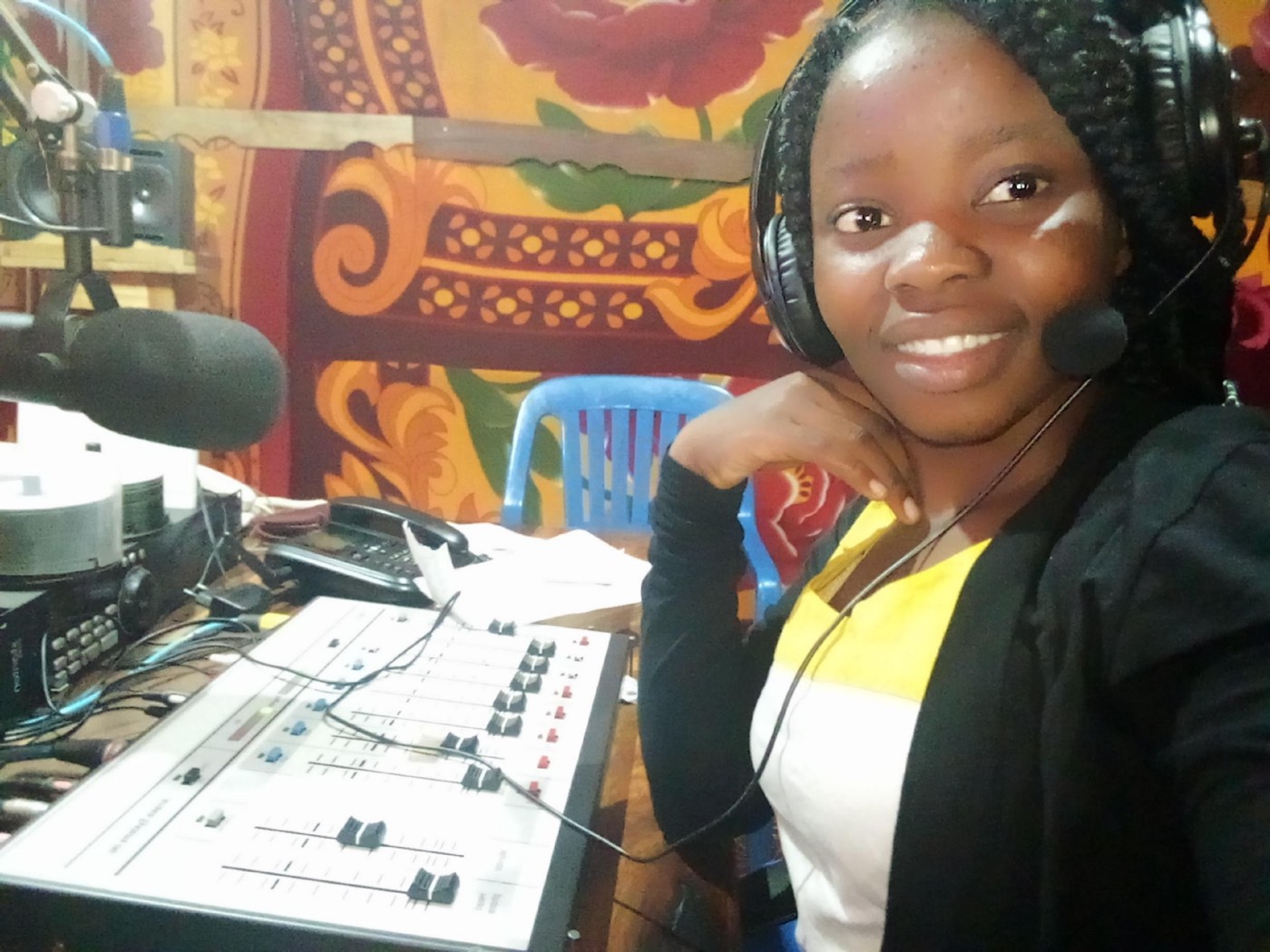
Me reading the news on our local radio station.
In September 2019, I took the first step towards that goal, reading the news and training as a youth ambassador at our local community radio station through the BBC media action program, with the aim of reducing sexual and gender based violence (SGBV). I interviewed people about their experiences. I also formed listening groups that gave feedback to partner radio stations and BBC media action on issues they broadcast regarding SGBV. We spoke about effective communication in relationships, intimate partner relationships, parents’ role in early marriage prevention, domestic violence, and how SGBV affects women and girls’ self-esteem, self-confidence and self-efficacy. What is so sad is losing future leaders when young women become mums at a tender age.
It is important to know our rights, because if we do, and if we know where to seek help, we can stop others from violating them.
Young people find it easier to open up to peers like me, who can be advocates, and connect them to social services or other organizations who can help. That peer support, brought into schools, is what being a CAMFED Learner Guide is all about. I am passionate about educating students about sexual and reproductive health rights, as well as the importance of youth entrepreneurship. The young people I mentor are learning that you should speak out if you are a victim of any kind of abuse. It is important to know our rights, because if we do, and if we know where to seek help, we can stop others from violating them. Not only should everyone set objectives in their lives, but we should learn to help and support one another in whatever we are doing.
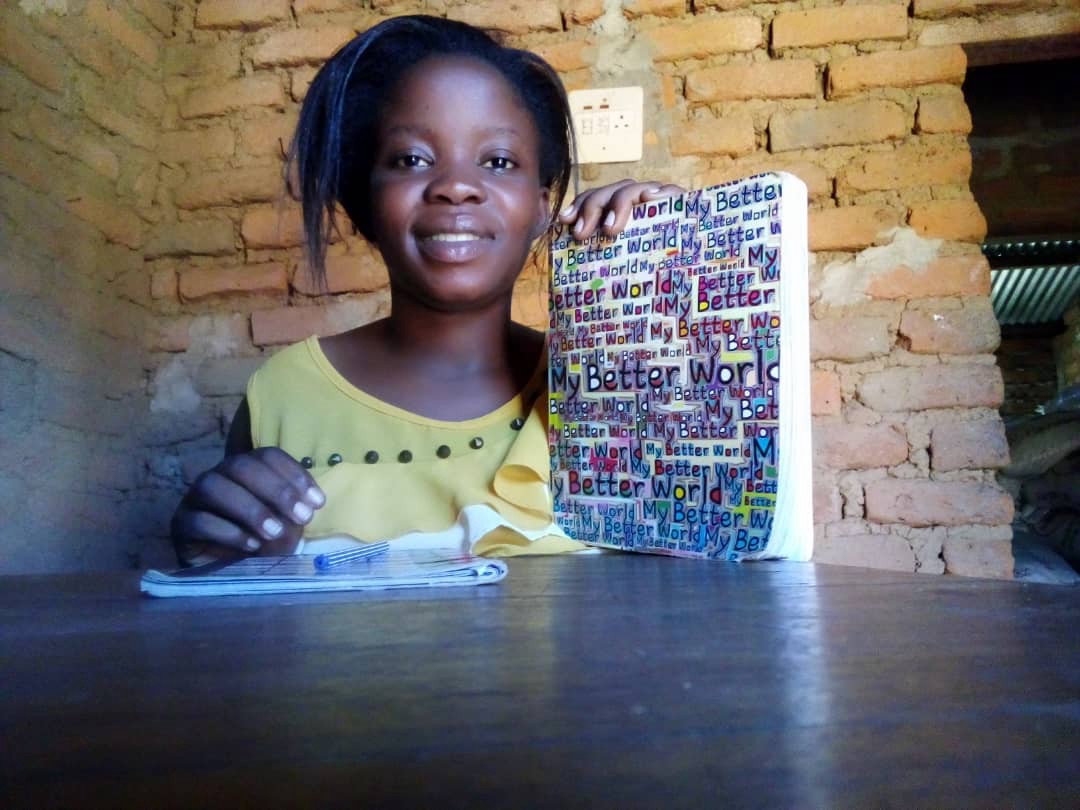
Me with the My Better World workbook, which is the tool I use when delivering life skills and wellbeing sessions as a Learner Guide. This curriculum inspired the My Better World TV series, which you can now watch on Youtube! Photo: Rachel Chileya
I’m not only motivating learners and peers, but also my family. They have realized the importance of setting goals, and having principles and aims in life. My brother walks me to meetings — he is proud of the fact that I graduated school. My mother says, “I am very proud of you, my daughter.” She cooks food for our youth group. She is part of me and she gives me support. She knows that I inspire others, and many mothers in my community say, “I want my daughter to be like Dyness.”
She was always quiet, and she wouldn’t participate in class. So I took time to visit her.
As Learner Guides, we recognize the signs when girls are at risk of dropping out of school, because we share so many of their experiences, and we come from the same communities. The teachers see that students open up to us in a way they may not do to teachers, because we are closer in age to students, and we have the time to visit them at home.
For example, there is a 15-year-old girl among the students I support. She was always quiet, and wouldn’t participate in class. So I took time to visit her. At first she wouldn’t open up, but I persisted. Eventually she came to see me at my place and when I asked, “How are you?” she said, “I’m not fine.”
I asked her what was wrong, and she explained how she had been traumatized because of the situation at home. She is living with her parents and her siblings. The girl’s father is blind, but still goes to the farm every day to make charcoal, because they need to sell charcoal to get some income. The girl would spend her weekends going with her father, holding his hand so he would walk carefully, and help him sell. Still the family struggles to afford the basics — like food, sanitary pads, and lotion. I saw the emotion when she was explaining this. She had no self-esteem, no confidence, because she thought no-one could like her because of the way her family lives. I told her, “If you are lacking something that I can afford, I can help you. If I can’t manage, I can find other means of helping you — I can talk to CAMFED at district level and they can assist.” I helped her with some food, and I provide social support. In addition to including her in the My Better World sessions I deliver at school, and which focus on our powers (our inner strengths), I meet with her and encourage her not to get married, not to get pregnant, but to persist with her education. Together with my CAMFED colleagues, I give her hope.
We found out that he was suffering emotionally, and this was affecting his studies.
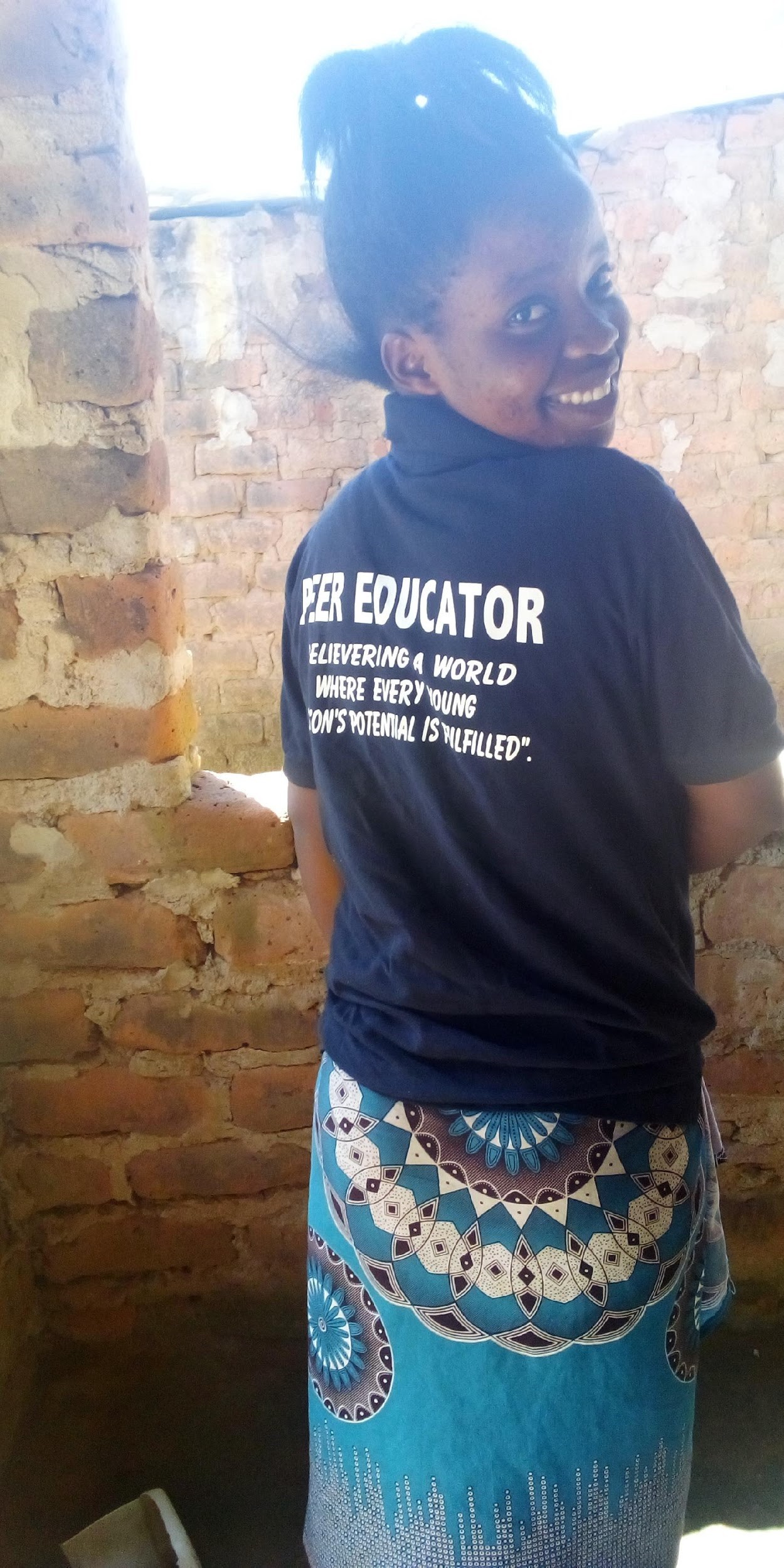
Me as a peer educator. Photo: Humphrey Mubanga
I have also been supporting a boy with guidance and counselling. My fellow Learner Guide Everlyn and I observed him in class; we could tell he was afraid. We found out that he was suffering emotionally, and this was affecting his studies. We knew that if he failed his exams, he would suffer even more. So we approached the Teacher Mentor (a CAMFED-trained government school teacher providing psycho-social support and working closely with Learner Guides) and together we went to see the family and the village head, who is very interested in children’s wellbeing in his community. We sat with the family, and explained the importance of supporting the boy’s education and wellbeing. The family listened, and now that boy has improved academically — he is one of the best in the class.
Discovering your powers, your inner strengths, helps you discover who you are, and who you want to become.
The topic of the My Better World curriculum which the students love most is all about the powers we possess. Discovering your powers, your inner strengths, helps you discover who you are, and who you want to become. These powers (like being in control of your actions and emotions, being empathetic, selfless and brave) help you survive — even if you do not progress academically, or if you don’t secure formal employment and there is no financial support from your family after you leave school. You can still do well, you can still start a business, for example.
I come from the same community where the students come from. They even know the way I live, everything about me. Seeing me standing in front of them makes them feel better.
For my commitment as a Learner Guide, I received incentives in the form of access to a Kiva loan to establish my own business, a hair salon, which I run from home. I come from the same community where the students come from. They even know the way I live, everything about me. Seeing me standing in front of them makes them feel better. Seeing me do well and run a business motivates them to do well in school.
I lost most of my customers during the COVID-19 restrictions, but I branched out to start making fritters (deep-fried snacks) to sell to my community members. This business has been able to sustain me and my family. I need to make income from a business so that I can help my family and achieve my goal of studying journalism at Evelyn Hone College.
When our school closed, my fellow Learner Guide Everlyn and I tried to help as many students as we could to stay safe and keep learning
When the COVID-19 pandemic struck, we drew on all our powers as Learner Guides. Powers like resilience, agility and collaboration were so important for us, and for the students we serve. There are two CAMFED Learner Guides per partner school, and when our school closed, my fellow Learner Guide Everlyn and I tried to help as many students as we could to stay safe and keep learning.
Students knew they could come and find us, and we would try and help. Students would come with Math questions, for example. I borrowed past exam papers from my nephew, lending them to students to help them study when we were unable to run the study groups we usually organize.
Also, some of the girls in my community had no money for sanitary pads, so I would share what little I made from my business. Of the 48 students we Learner Guides support, some went to stay with other relatives when schools closed, but our CAMFED colleagues, my fellow Learner Guide and I kept in touch with as many of the others as possible, linking them to services and support, and working to keep children safe and hopeful.

Our Teacher Mentor Marjory Kunda took this selfie with me (jeans skirt) and some of the girls I mentor. Photo: Marjory Kunda
When schools re-opened, classes were split in half to allow for more distancing, with sessions held in the mornings and afternoons. I am back in school delivering My Better World sessions, and the Teacher Mentor I work with, Marjory Kunda, is so supportive. We have a great relationship, and she appreciates how as Learner Guides students open up to us — we know who is well, and who is in crisis, so we can step in.
You always give to others
As a role model especially to girls, I help them discover their potential and their powers — for example the courage to become someone like me, who assists others and runs a business. As a result, they will live a better life, which will also benefit those around them, because you always give to others.
That’s how we lead a better world: Together we stand. Divided we fall.
CAMFED’s unique solution to girls’ exclusion from education, the Learner Guide Program, is led by young women like Dyness, who were once themselves at risk of early marriage. Learner Guides’ outreach in remote rural communities has been deemed an “essential service” by governments, especially during school closures as a result of the COVID-19 pandemic. The program’s development was made possible through funding from UK Aid, including through the Girls’ Education Challenge.
